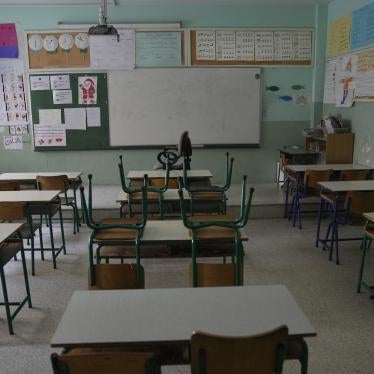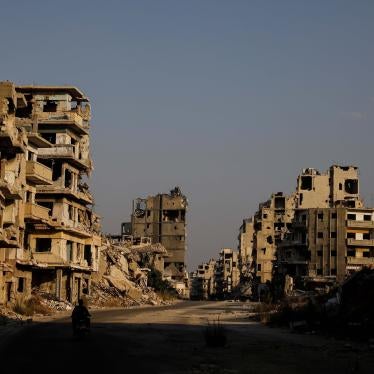Mariam al-Khawli, a mother of four, fled the violence of Syria with her family and sought refuge in Lebanon. But the relief of escaping Syria’s horrors turned, eventually, to despair. Unable to feed her children because their family no longer met the UN refugee agency’s conditions, Mariam stood outside the agency office in Tripoli on March 25 and set herself on fire, according to her husband.
Mariam’s family received assistance during the first 18 months in Lebanon, but because the family included adults who were potential breadwinners, among other factors, they no longer qualified for food aid after UN aid agencies reduced assistance from 100 percent refugee coverage to 72 percent last fall. But opportunities for work in beleaguered Lebanon are rare, so her family, like many others, was unable to find the means for paying rent, let alone for buying food.
How did it come to this? Mariam, now hospitalized with third-degree and deep second-degree burns concentrated on her face and chest, is one of 992,000 refugees in Lebanon, who continue at a rate of about 2,300 per day into this small country of 4.4 million. This is the equivalent of 72 million refugees suddenly arriving in the United States. Lebanon’s humanitarian support need for 2014, according to the UN appeal, is $1.8 billion. Yet, as of March 21, the appeal was only 14 percent funded.
If you think the situation couldn’t be worse, think again. Worldwide humanitarian needs caused by growing crises are far outstripping the ability of humanitarian actors to respond. The UN appeal for South Sudan, with one million uprooted, is at only 25 percent; the Central African Republic appeal, at 21 percent.
The UN refugee agency depends entirely on voluntary donations. When the money is not forthcoming, it has no choice but to provide aid to those it assesses to be the most vulnerable. So, let’s put the responsibility where it belongs. When international donors turn their backs on victims of conflict, people like Mariam pass the point of desperation, and we all lose a bit of our humanity.







